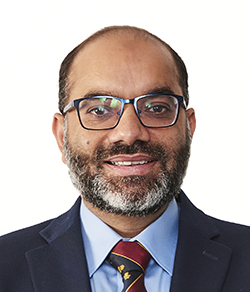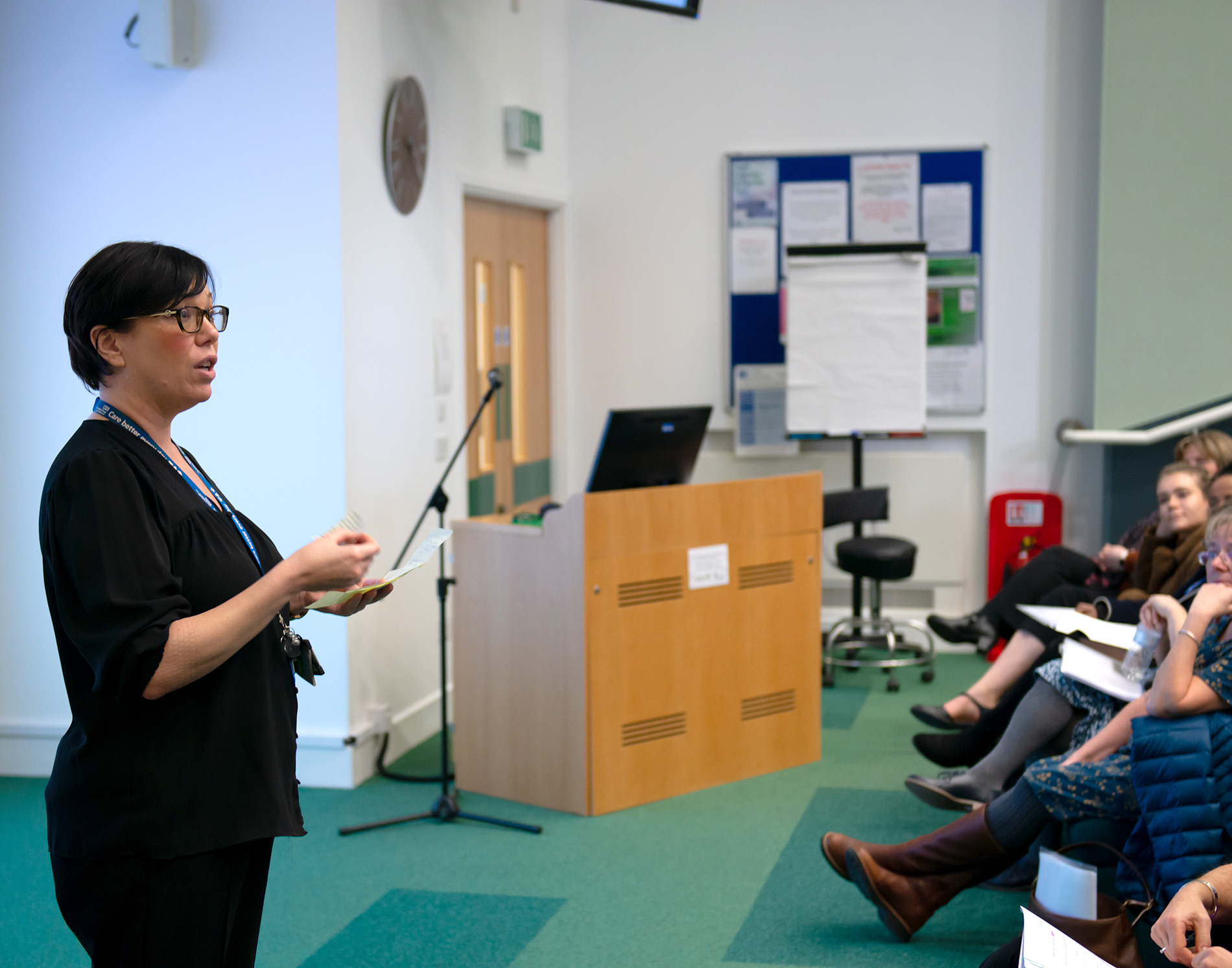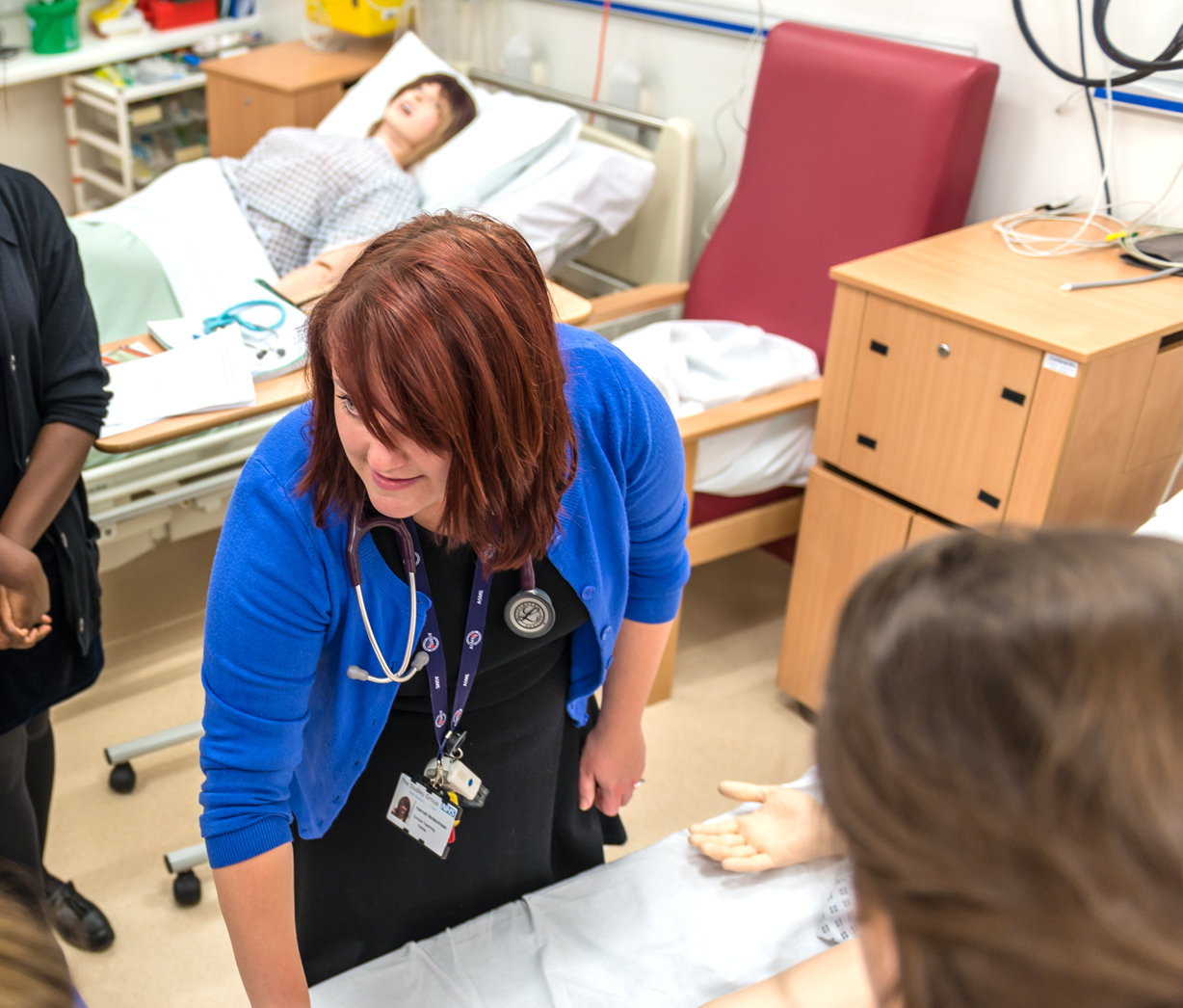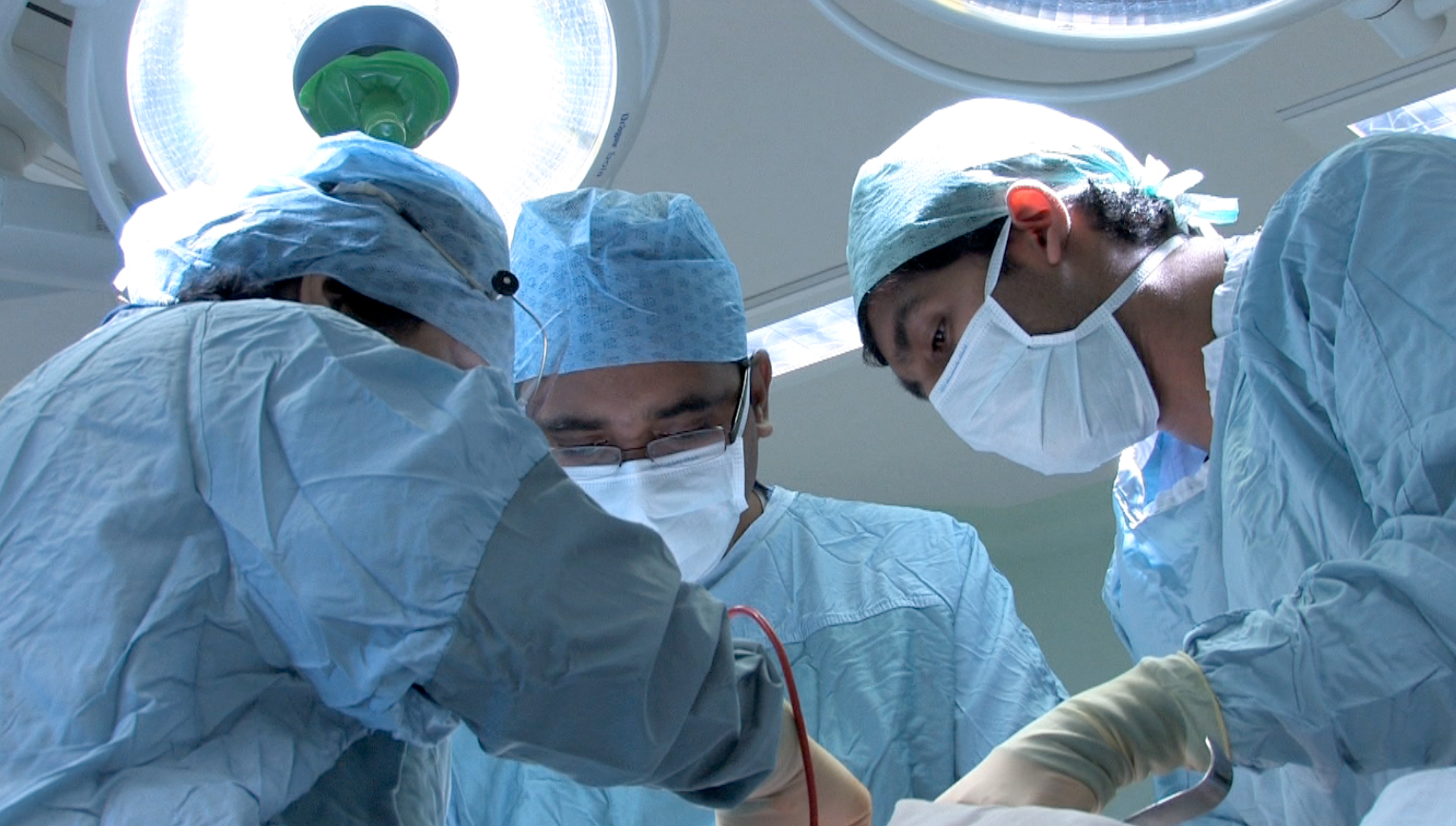Support
Champions
There are four different types of Champions that support junior doctors at The Dudley Group.
Select a section from the menu below to learn more.
Guardian of Safe
Working (GOSW)
OUR PEOPLE, THEIR INSIGHTS -
MR BABAR ELAHI
Mr Babar Elahi talks about the role of the Guardian of Safe Working.
What is the Guardian of Safe Working?
- A champion of safe working hours for doctors in approved training programmes
- Acts independently of Trust management structure
- Mandatory post
What are the responsibilities of the Guardian?
- Provide assurance to doctors and the employer that doctors are safely rostered
- Receive Exception Reports
- Escalate issues regarding safe working hours
- Has the authority to intervene if patient or doctor safety is compromised
- Can intervene where issues are not being resolved satisfactorily
- Distributes monies received as a consequence of financial penalties
To find out more about Guardians of Safe Working, please open the full presentation written by our previous Guardian, Mr Babar Elahi.
Select to view the presentation from NHS Employers titled – ‘2016 TCS: An opportunity for making real change’
Our new appointed
‘Guardian of Safe Working’
is Mr Fouad Chaudhry

Exception Reporting
Exception reporting is a crucial part of the Junior Doctor Contract, enabling safe working environments while ensuring training requirements are met. By reporting exceptions, such as working over or under scheduled hours, missed breaks, and missed educational opportunities, you can protect yourself and colleagues, enhance training opportunities, and ensure well-being.
Reports must be submitted within 14 days, except for those claiming payment, which must be submitted within seven days. Reports are sent to your educational supervisor and copied to the guardian of safe working hours and the director of medical education, who will contact you within two weeks to discuss any required actions.
Exception reports are submitted through the Allocate system, which you should register for upon receiving an email from Allocate.
Please contact Wendy Wheeler if you need assistance with this.
Health and Wellbeing
Champion for Doctors
Wellbeing
The need for the care of the wellbeing of all NHS staff was highlighted during the COVID-19 pandemic. We recognise that caring for the wellbeing of staff is paramount. Therefore, this Trust aims to coordinate a high level of support for every member of staff that needs it.
We are incredibly complex, wonderful, organisms. Our lives are finely balanced with an array of different things that we have going on all at the same time! Somehow, we balance our jobs, our relationships, our physical health, our faith perspective, our emotions, and much more, and then manage to go to work and start helping others with their lives too!
Unfortunately, when the fine balance of all of these things is disrupted, our wellbeing can become unbalanced. Stresses or anxieties can become predominant. Fatigue and distraction might become too much for us. We might try to cope by becoming withdrawn or emotionally unstable. This may even have an impact on how we care for our patients.
During the height of the COVID-19 pandemic, this became more evident than before with high levels of stress and burnout amongst junior doctors.
Wellbeing Champion
In response to this, both around the country and in Dudley, there has been a move towards recognising the importance that wellbeing has amongst our junior doctors. There has also been more focus on the development of services and support geared towards caring for the people who care for others.
The Dudley Group is working towards becoming a place where there is a culture supportive towards the wellbeing of junior doctors. The wellbeing champion for junior doctors (a consultant who spends dedicated time working with wellbeing) is a relatively new post, which demonstrates our desire to be a supportive hospital. Of course, change takes time. But we have wellbeing goals in Dudley, and we are doing what we can to be a place that really cares for junior doctors.
If you would like to find out more about wellbeing at The Dudley Group, then please get in touch.
OUR PEOPLE, THEIR INSIGHTS - Dr Richard Alleyne
Dr Richard Alleyne is The Dudley Group’s Health and Wellbeing Champion. He talks about his experiences in this role.

Forums
There are regular Junior Doctors Forum / Guardian of Safe Working meetings at Russells Hall Hospital. All junior doctors are encouraged to attend. There are also regular meetings with the RCP Associate Tutors and Associate College Tutors to discuss issues more specific to the IMT programme.
Mess
The Dudley Group junior doctors mess is an organisation run by doctors for doctors.
There are two in the hospital, one is located on the ground floor along the corridor to the right of WHSmith, and the other is situated in South block opposite the gym. The mess offers a fridge, microwave, sofas, a TV and computers. It is a comfortable place to relax and rest on a busy shift. It can be accessed 24 hours day and offers social events.

If you are a member of staff at The Dudley Group, and would like more information regarding health and wellbeing, please select the link below to access the DGFT Medical Education platform.
You will need to log in to the platform to gain access.
Champion of
Flexible Working

"More than 1 in 10 doctors in training in England now work LTFT"

The Champion of Flexible Working role was included as part of the Advisory, Conciliation and Arbitration Service (ACAS) agreement within the 2016 doctors in training contract.
The role has since been made mandatory and every Less Than Full Time (LTFT) trainee doctor at The Dudley Group has access to a champion of flexible working. The introduction of this way of working offers trainees more flexibility., It also allows them to access support as they carry out their training and other commitments.
More than 1 in 10 doctors in training in England now work LTFT.
There are a number of reasons for considering less than full-time training. Spending more time with family, caring for an ill or disabled partner, relative or other dependent, or dealing with a personal disability or health problem. Acceptance for LTFT is also possible if you are engaging in other aspects of professional development.

As the Champion of Flexible Working, I link with LTFT trainees in the Trust to assist with queries and concerns. I am happy to be contacted with individual concerns regarding common LTFT issues such as working days, pay, rota and on-call planning and work schedules. I can signpost trainees and their supervisors to relevant departments, colleagues and information. I can support training and development for supervisors and trainees regarding LTFT issues. I am also a point of contact for trainees considering working LTFT.
Having worked LTFT myself as a trainee and now as a consultant, I have first-hand experience of many of these issues, and of the anxiety and challenges that this can bring for trainees.
Dr Elizabeth Pudney


There are certain criteria that need to be fulfilled in order to be accepted for Less Than Full Time.
For more information, please select the following links:
Supported Return to
Training (SRTT) Champion
or SuppoRT?
Out of the 50,000 doctors in England currently in postgraduate medical training, roughly 10% are taking time out of training at any one time. A doctor might take time out for a variety of personal or professional reasons, to gain additional experience or qualifications, or a career break. The 2016 Acas junior doctors’ contract agreement committed Health Education England (HEE) to develop innovative, evidence-based initiatives to “remove as far as possible the disadvantage of those who take time out SuppoRTT was developed to provide targeted assistance to help doctors get back “up to speed” when they return to training. There is HEE funding of up to £3000 per trainee. All applications need to be discussed and agreed with the trainee’s educational supervisor prior to being submitted. SuppoRTT can offer:
- A period of enhanced supervision
- Refresher courses and simulation training
- Mentoring or professional coaching
- Conferences and workshops
- Funding for other courses or development, as individually required
"...common to feel that they have knowledge gaps, skills fade or loss of confidence..."
It is common for trainees to feel that they have knowledge gaps, skills fade or loss of confidence following a period of time out of training.
The Supported Return to Training (SuppoRTT) scheme is a nationally driven initiative which aims to support all trainees to return to training safely and confidently after a sustained period of absence. It applies to trainees who have been out of training (or planning to) for a period of 3 months or more i.e., parental leave, sick leave/phased return and those trainees on OOP (out of Programme).




